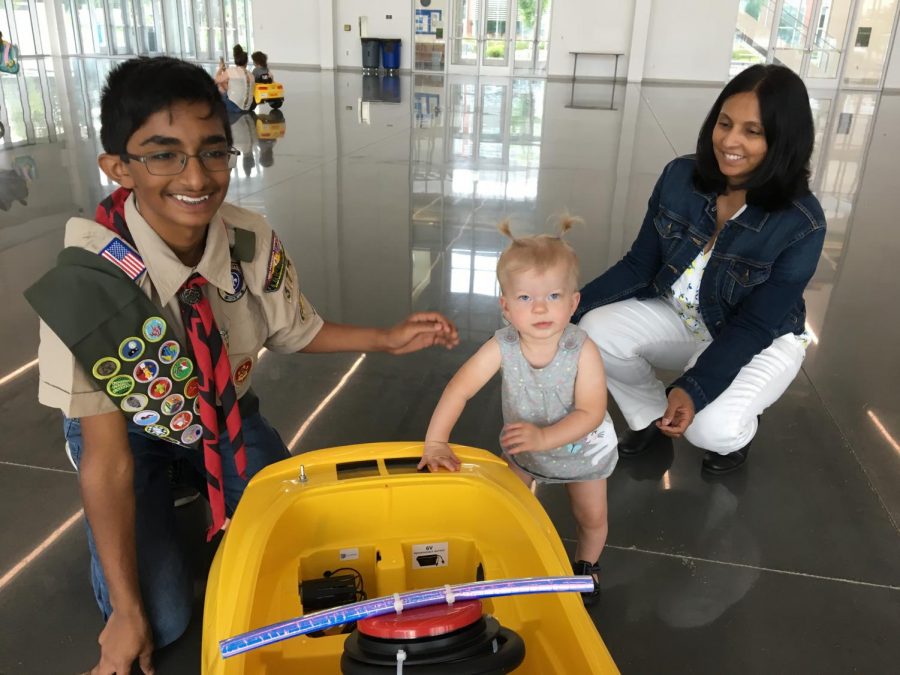Redifining automobility
Freshman reconstructs mobile cars for disabled children
The pint-sized race car swerves making figure-eights on the concrete floor. Bubbling, childish laughter reverberates throughout the warehouse as a toddler pushes the acceleration button and races by in their vehicle, the yellow paint as bright as freshly picked lemons.
With freshman Rohan Fichadia’s alterations, children with disabilities are able to be as active as anyone in their own personalized mini automobiles. Fichadia has been a member of the Boy Scouts of America for five years and spent time researching potential projects before finding that improving the quality of life for disabled people was his calling.
“I came across an idea online, and with the help of my parents, I reached out to Meaghan Walls from Assistology and saw if I could help. Over the past year and a half, I’ve been going there,” Fichadia said.
Assistology is an organization that is dedicated to providing assistive technology and rehab engineering services, and president Meaghan Walls helped Fichadia reach out to families in need. He wanted to give increased mobility to younger children by rewiring mini electric cars so that those with limited leg movement can instead press a central button with their arms to give the car gas.
“We also cut out plastics and decals to attach them to where the license plates would be. So they were just nice, little personal touches. If they needed back support and aren’t able to hold their body up properly, we would add a car seat or PVC piping, just really anything they need,” Fichadia said.
The whole process of rewiring the acceleration pedal to the central button along with adding the finishing touches took about two to three hours per car, but for Fichadia, it’s all worth it to see the children’s reactions.
“It’s amazing, especially when their face lights up as they’re figuring out that pressing this button means they have control over their mobility for the first time,” Fichadia said. “I remember I was working with one of the families, and then from across the room, I heard this cackle of glee as one of the kids figured it out.”
Walls sees how much these automobile innovations impact not just the children but their parents as well.
“They get to see their child move around their environment more independently with some autonomy for possibly the first time in their lives. This also often leads to siblings having a way to engage in play together like racing down the sidewalk or taking family walks,” Walls said.
Even after the initial exposure, Fichadia’s inventions have had a lasting impact on disabled individuals like 2.5-year-old, Elliot Sass.
“This car is just the perfect solution for him. Elliott has always had to ride shotgun but now he gets to be the driver. The joy in his eyes when he gets behind the wheel can light up the whole world,” Corie Sass, mother of Elliot, said.
Walls too, felt her eyes were opened to a new sense of hope and community surrounding service.
“I learned that he [Fichadia] can motivate a group of 12 teenage boys to volunteer their time on a Saturday morning in the summer for a greater good,” Walls said. “It was a great example of the leadership capabilities his generation possesses and can use for great community impact.”
Fichadia plans to continue his rewarding work helping the disabled community and is hoping to volunteer at a therapy center helping children with cerebral palsy and Down syndrome.
“With this project, I realized how much of a difference you can make in someone’s life with only a few hours of your time, just a portion of your day,” Fichadia said. “It’s just crazy how much a few hours can impact someone’s life.”


